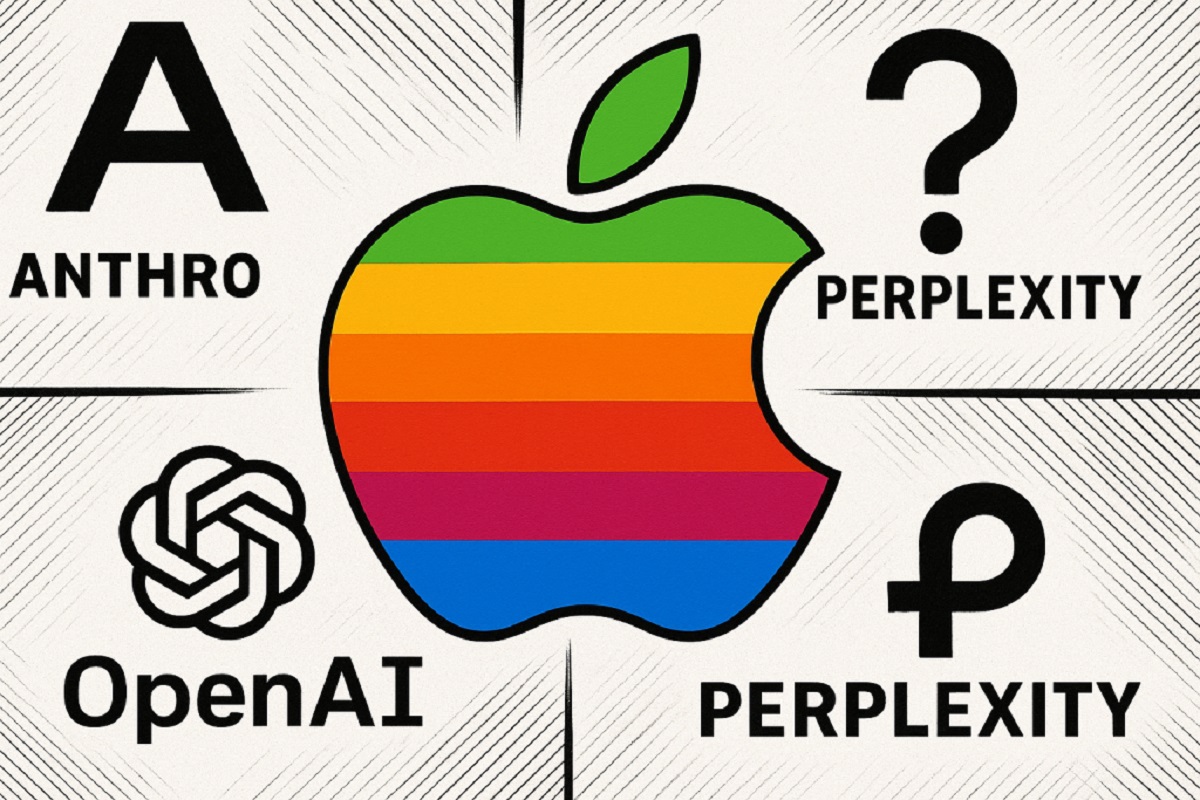Apple's Next Move to AI Search, Safari Revolution Ending the Google-Defined Era
Apple Inc. is poised to redefine how users search the web on its devices, potentially terminating its decades-long partnership with google. Eddy Cue, Apple’s Senior Vice President of Services, reveale

Apple Inc. is poised to redefine how users search the web on its devices, potentially terminating its decades-long partnership with google.
Eddy Cue, Apple’s Senior Vice President of Services, revealed during testimony in the U.S. Justice Department’s antitrust lawsuit against alphabet inc. that the company is “actively looking at” integrating AI-powered search engines into its Safari browser. This shift could dismantle the $20 billion annual deal that has cemented Google as the default search engine on apple devices since the iPhone’s launch in 2007, marking the end of an era defined by Google’s dominance.
The Google Partnership and AI as the Future of Search
The Justice Department’s lawsuit targets the exclusivity of Google’s search deal with Apple, arguing it stifles competition. A ruling against Alphabet could force the dissolution of this partnership, which has been a financial cornerstone for both companies.

For Apple, the deal has bolstered its services division—a rare growth area amid stagnating hardware sales—bringing in a record $26.6 billion in the March quarter. For Google, it has ensured unrivaled access to Apple’s vast user base. However, the rise of AI is accelerating changes that may render this arrangement obsolete.
Eddy Cue’s testimony highlighted a seismic industry shift toward AI-driven search. He noted a historic dip in Safari searches last month, attributing it to users increasingly turning to AI tools for answers. Cue believes providers like OpenAI, Perplexity AI Inc., and Anthropic PBC could eventually supplant traditional search engines. “Prior to AI, none of the others were valid choices,” he said. “Today, there is much greater potential because new entrants are attacking the problem in a different way.”
Apple has already taken steps in this direction, integrating OpenAI’s ChatGPT into Siri and planning to add Google’s Gemini later this year. Discussions with other AI players, including Perplexity, DeepSeek, and Elon Musk’s xAI, are also underway. While Cue sees promise in these technologies, he cautioned they aren’t ready to replace Google as the default—yet. “We will add them to the list—they probably won’t be the default,” he said, emphasizing the need for further refinement.
A Broader Industry Shift
The potential end of the Google partnership carries significant financial implications. Investors responded swiftly to Cue’s testimony, with Alphabet shares plunging 7.3%—their steepest drop since February—and Apple shares declining 1.1%. Cue admitted the loss of Google’s revenue-sharing keeps him awake at night, given its importance to his services division. Yet, he views AI as an inevitable technological leap, one Apple must embrace despite the risks.
Cue’s remarks point to a broader evolution in technology. “You may not need an iPhone 10 years from now as crazy as it sounds,” he said, suggesting AI could render even Apple’s flagship device obsolete. He argued that true competition emerges from technological shifts, and AI represents such a moment, creating opportunities for new players. To compete, AI search providers must improve their search indexes, but Cue believes their innovative features could drive a consumer shift regardless. “There’s enough money now, enough large players, that I don’t see how it doesn’t happen,” he said.
The Twists And Turns Of Apple AI
Apple’s AI ambitions aren’t without hurdles. The company has lagged in developing its own AI search engine and recently postponed major Siri upgrades that would leverage personal data for tailored responses.
In 2018, Apple hired John Giannandrea from Google to unify its fragmented AI efforts under a single leadership structure, aiming to bolster its position in a competitive field where Siri had lagged behind rivals like Amazon’s Alexa and Google Assistant. However, six years later, this centralized approach has proven ineffective. Apple has fallen further behind in AI innovation, with promised Siri enhancements consistently delayed and the recently launched Apple Intelligence platform delivering lackluster performance.
Facing these setbacks, Apple is now dismantling Giannandrea’s AI organization, reverting to its traditional functional management model. These moves, initiated as early as 2021 with the self-driving car project’s realignment and accelerated after its cancellation in 2024, underscore a lack of confidence in the AI team’s ability to deliver critical advancements. The reorganization reflects Apple’s urgent need to address delays and engineering challenges at a pivotal moment for the tech industry.
With Giannandrea’s team streamlined, speculation surrounds his potential exit, as remaining AI responsibilities are poised to shift to the software engineering division. This rollback of a dedicated AI chief marks the end of Apple’s experiment with centralized AI leadership, highlighting persistent struggles to keep pace with competitors in a rapidly evolving domain.
At its June 9 developer conference, Apple plans to unveil enhancements to its Apple Intelligence platform, signaling a push to close the gap with competitors.
Challenges and Opportunities Ahead
For now, Cue believes Google should remain Safari’s default due to its superior financial terms. However, external pressures—like a recent court order allowing developers to bypass the App Store for in-app payments—threaten his division’s revenue further. Combined with tariffs and regulatory scrutiny, Apple faces a critical juncture. The shift to AI search offers a chance to innovate, but it also risks destabilizing a profitable status quo.
As Apple navigates this transition, the stakes extend beyond its balance sheet. A move to AI search could reshape the tech landscape, ending an era defined by Google and ushering in a new one powered by artificial intelligence. Whether Apple can lead this charge—or merely adapt to it—remains to be seen.
Disclaimer: The views in this article are from the original Creator and do not represent the views or position of Hawk Insight. The content of the article is for reference, communication and learning only, and does not constitute investment advice. If it involves copyright issues, please contact us for deletion.